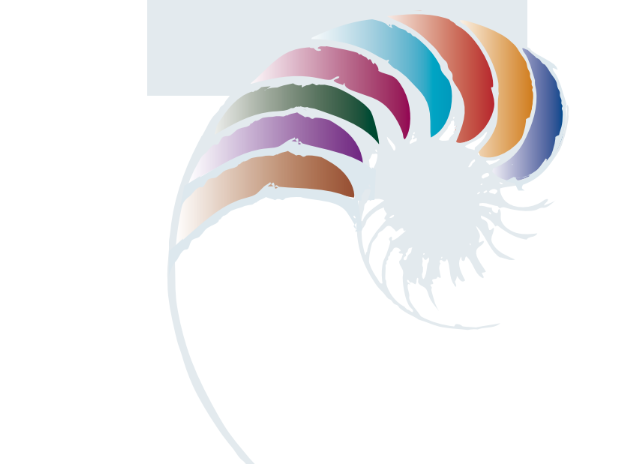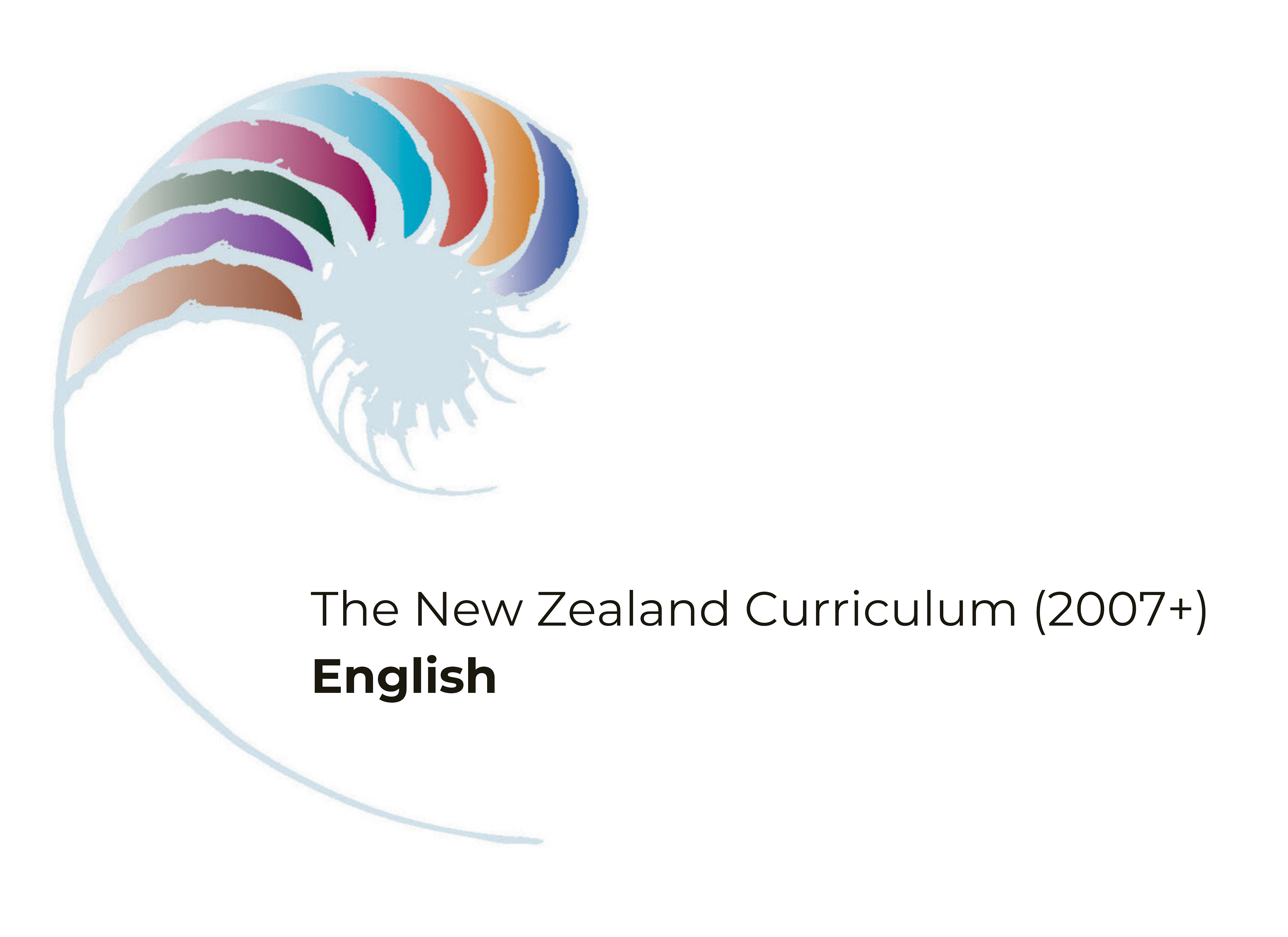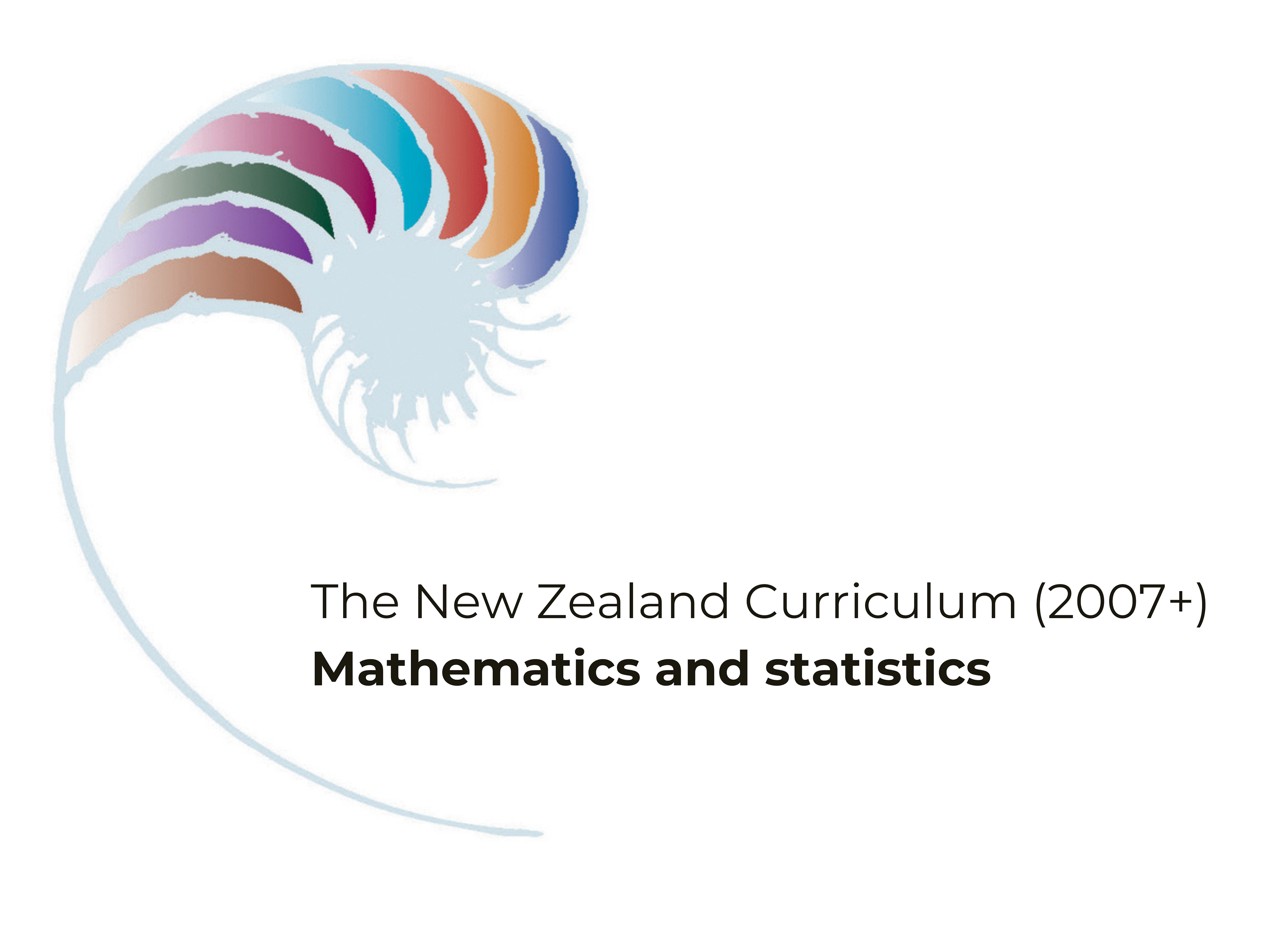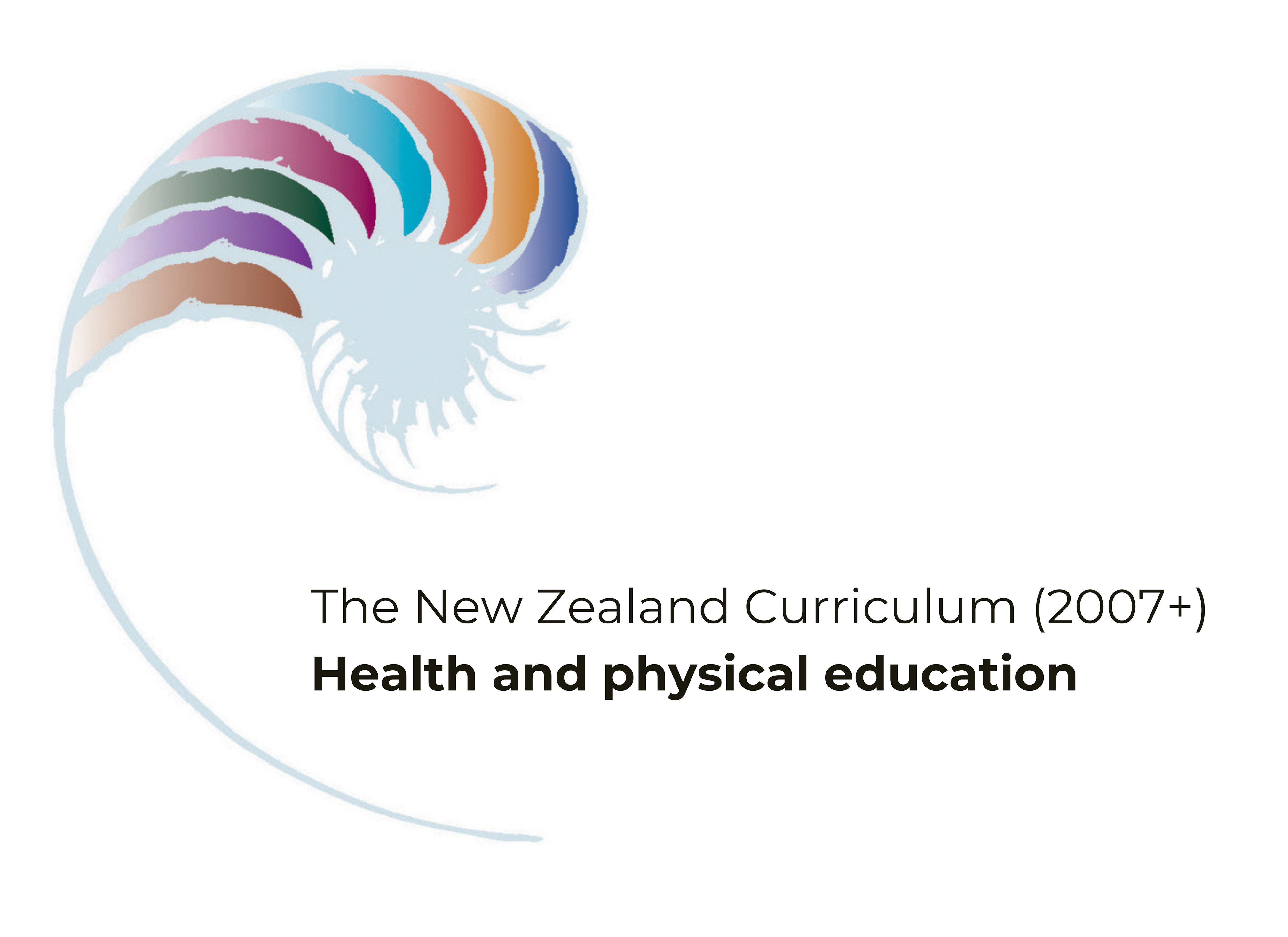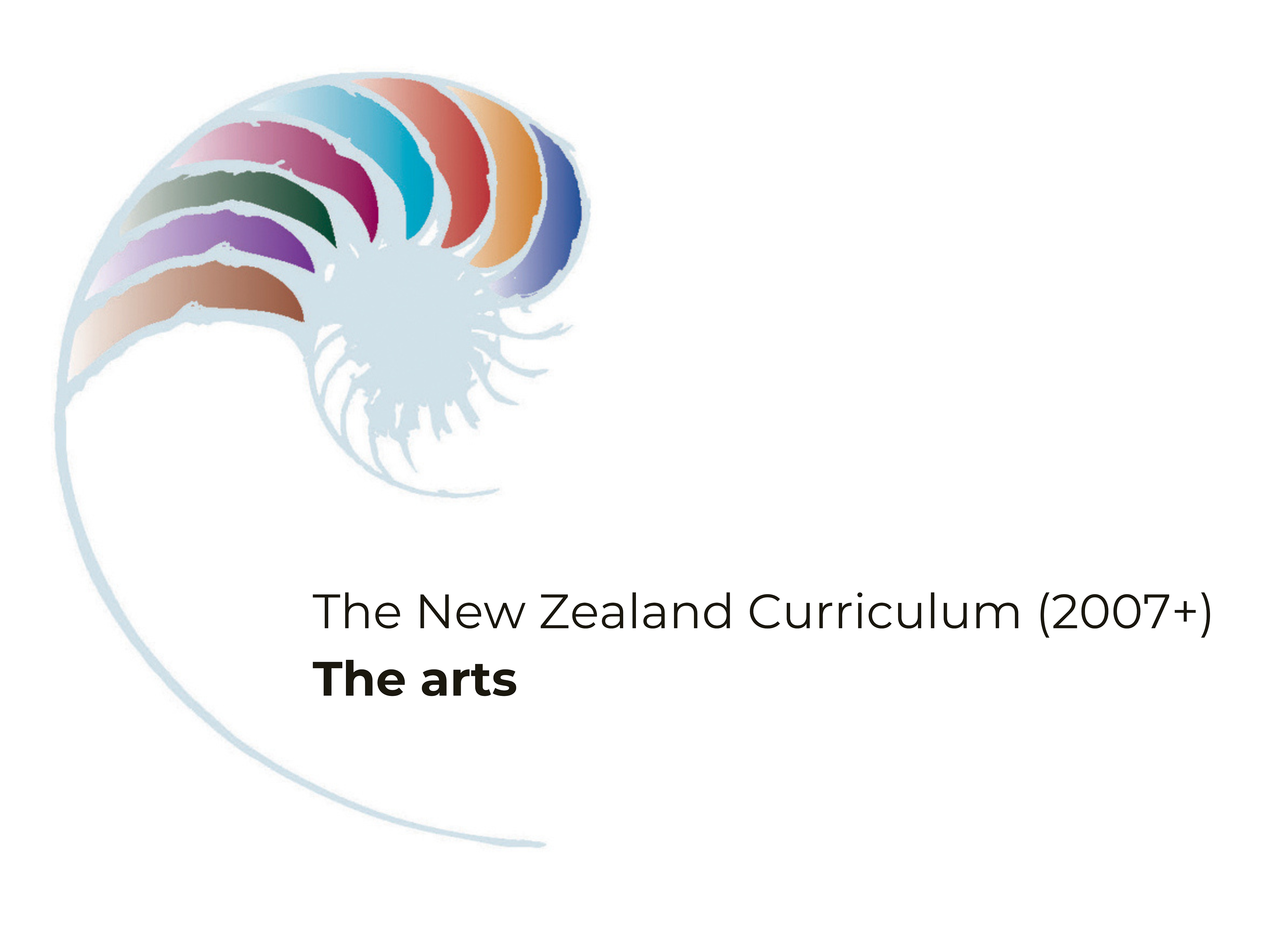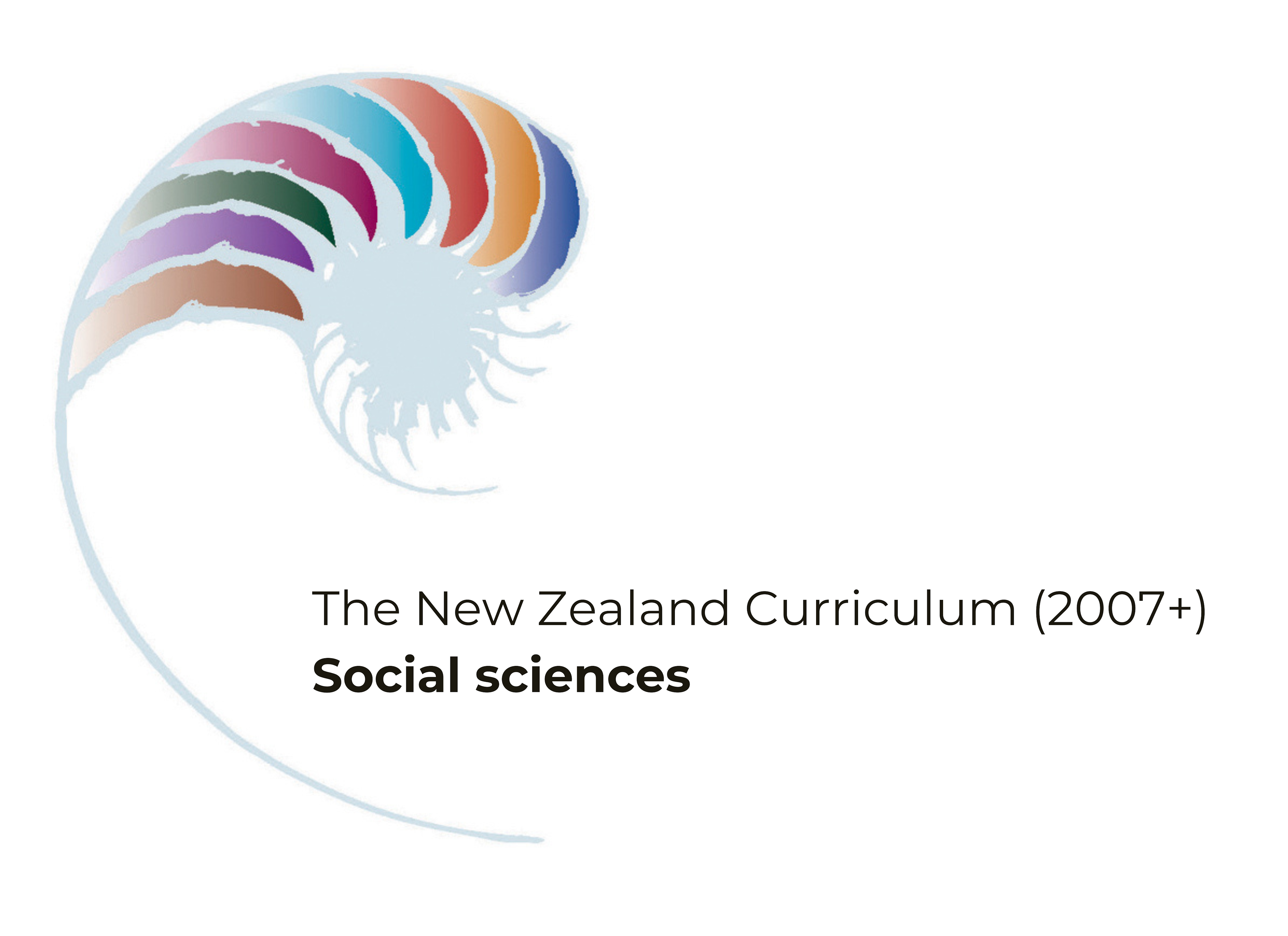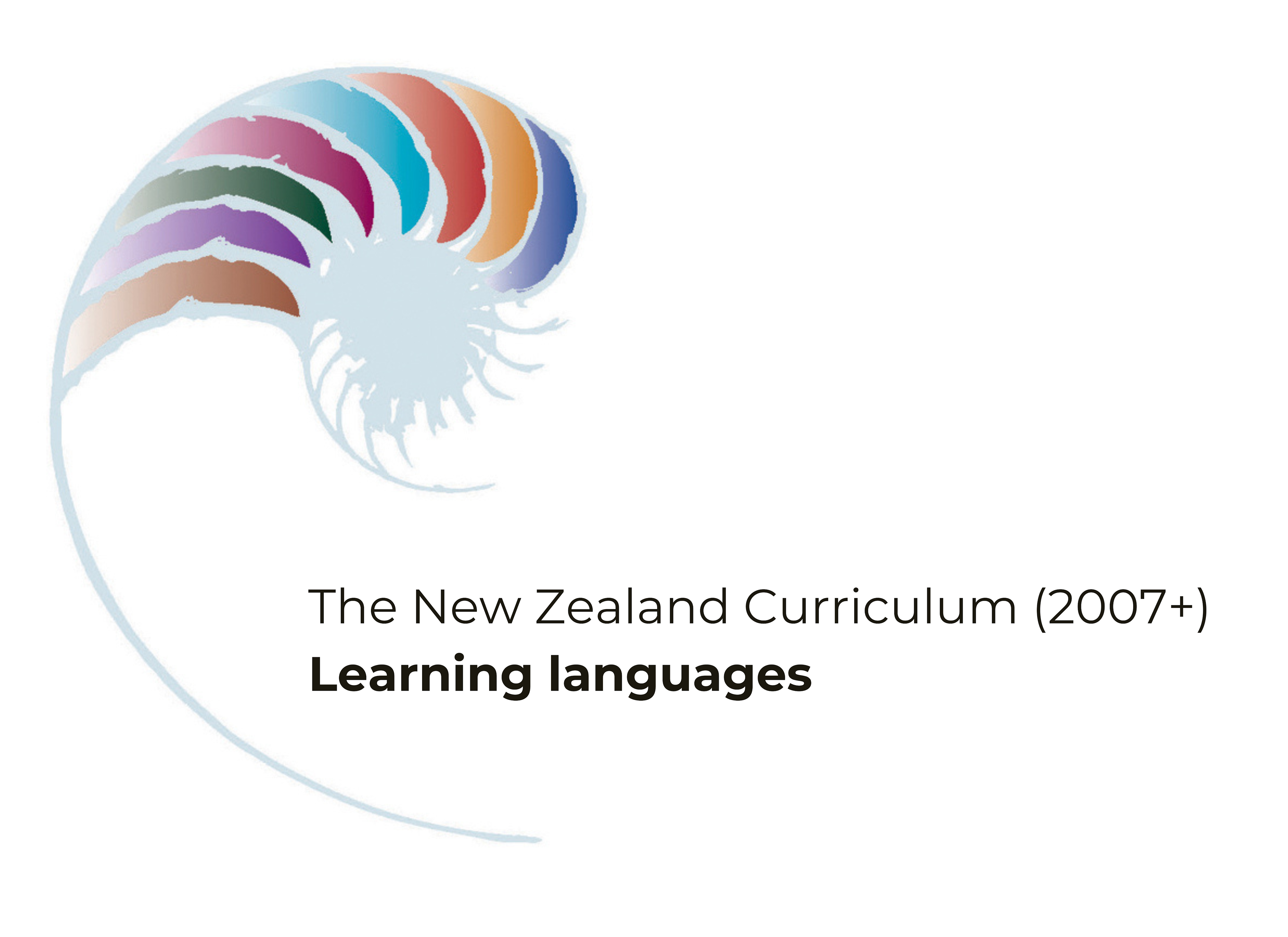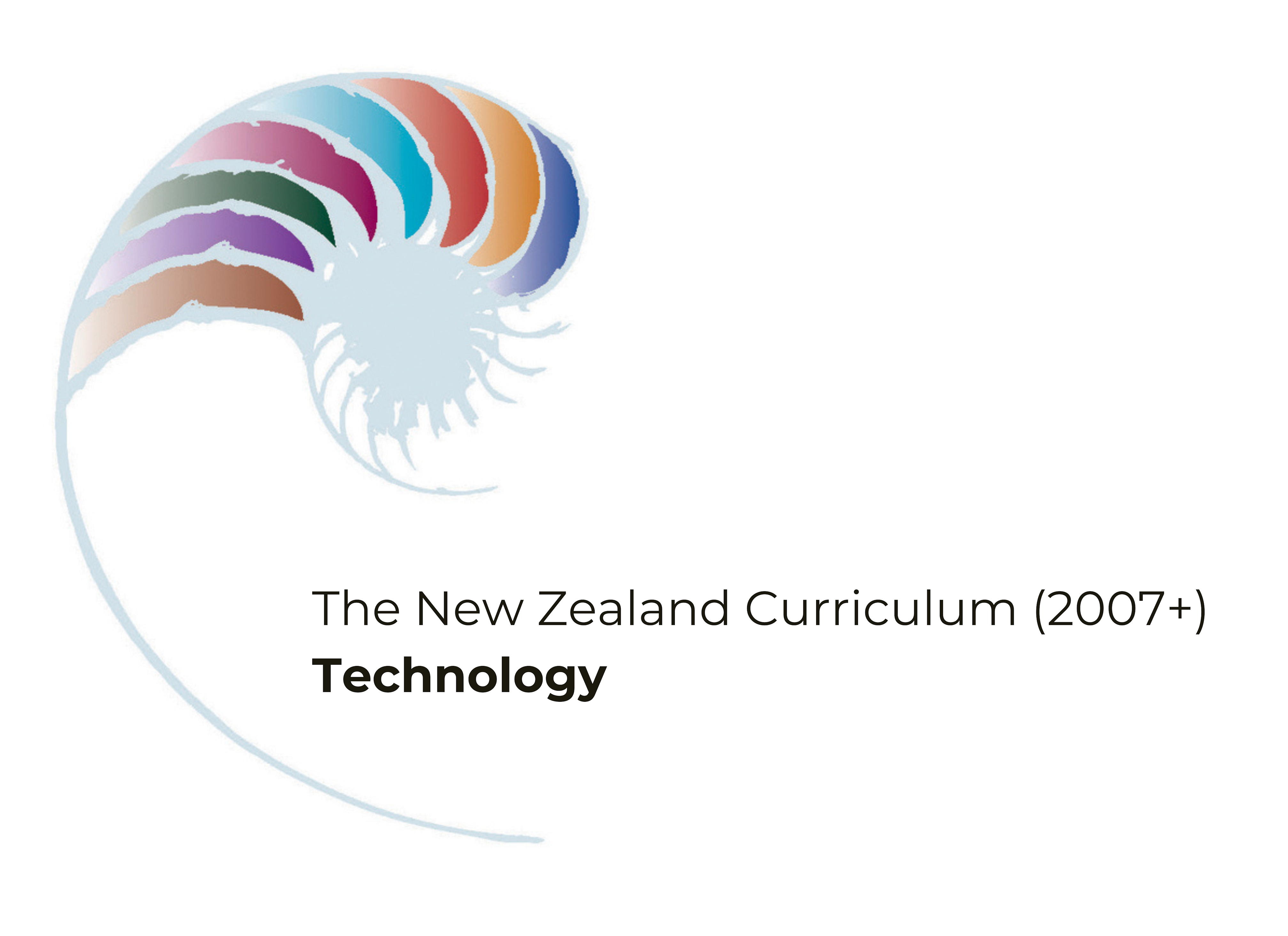The New Zealand Curriculum - Science
Statement of official policy relating to teaching, learning and assessment of science in all English medium state and state-integrated schools in New Zealand.

Tags
- AudienceSchool leadersKaiakoBoards of trustees
- Learning AreaScience
- Resource LanguageEnglish
- Resource typeText/Website
About this resource
Science is one of the learning areas in the New Zealand Curriculum, the official document that sets the direction for teaching, learning, and assessment in all English medium state and state-integrated schools in New Zealand. In science, students explore how both the natural physical world and science itself work so that they can participate as critical, informed, and responsible citizens in a society in which science plays a significant role.
Add to collection
The New Zealand Curriculum - Science
What is science about?
Mā te whakaaro nui e hanga te whare;
mā te mātauranga e whakaū.
Big ideas create the house;
knowledge maintains it.
Science is a way of investigating, understanding, and explaining our natural, physical world and the wider universe. It involves generating and testing ideas, gathering evidence – including by making observations, carrying out investigations and modelling, and communicating and debating with others – in order to develop scientific knowledge, understanding, and explanations. Scientific progress comes from logical, systematic work and from creative insight, built on a foundation of respect for evidence. Different cultures and periods of history have contributed to the development of science.
- Why study science?
- Learning area structure
- Achievement objectives
- Teaching time requirements
Science is able to inform problem solving and decision making in many areas of life. Many of the major challenges and opportunities that confront our world need to be approached from a scientific perspective, taking into account social and ethical considerations.
By studying science, students:
- develop an understanding of the world, built on current scientific theories
- learn that science involves particular processes and ways of developing and organising knowledge and that these continue to evolve
- use their current scientific knowledge and skills for problem solving and developing further knowledge
- use scientific knowledge and skills to make informed decisions about the communication, application, and implications of science as these relate to their own lives and cultures and to the sustainability of the environment.
The fundamental aims of science education are expressed as a series of achievement aims, grouped by strand. (For these, see the achievement objectives tab.) The achievement objectives at each level are derived from the aims and are similarly grouped by strand.
The "nature of science" strand is the overarching, unifying strand. Through it, students learn what science is and how scientists work. They develop the skills, attitudes, and values to build a foundation for understanding the world. They come to appreciate that while scientific knowledge is durable, it is also constantly re-evaluated in light of new evidence. They learn how scientists carry out investigations, and they come to see science as a socially valuable knowledge system. They learn how science ideas are communicated and how to make links between scientific knowledge and everyday decisions and actions. These outcomes are pursued through the following major contexts in which scientific knowledge has developed and continues to develop.
The "living world" strand is about living things and how they interact with each other and the environment. Students develop an understanding of the diversity of life and life processes, of where and how life has evolved, of evolution as the link between life processes and ecology, and of the impact of humans on all forms of life. As a result, they are able to make more informed decisions about significant biological issues. The emphasis is on the biology of New Zealand, including the sustainability of New Zealand’s unique fauna and flora and distinctive ecosystems.
The "planet earth and beyond" strand is about the interconnecting systems and processes of the Earth, the other parts of the solar system, and the universe beyond. Students learn that Earth’s subsystems of geosphere (land), hydrosphere (water), atmosphere (air), and biosphere (life) are interdependent and that all are important. They come to appreciate that humans can affect this interdependence in both positive and negative ways.
Students also learn that Earth provides all the resources required to sustain life except energy from the Sun and that, as humans, we act as guardians of these finite resources. This means knowing and understanding the numerous interactions of Earth’s four systems with the solar system. Students can then confront the issues facing our planet and make informed decisions about the protection and wise use of Earth’s resources.
The "physical world" strand provides explanations for a wide range of physical phenomena, including light, sound, heat, electricity, magnetism, waves, forces, and motion, united by the concept of energy, which is transformed from one form to another without loss. By studying physics, students gain an understanding of interactions between parts of the physical world and of the ways in which they can be represented. Knowing about physics enables people to understand a wide range of contemporary issues and challenges, and potential technological solutions.
The "material world" strand involves the study of matter and the changes it undergoes. In their study of chemistry, students develop understandings of the composition and properties of matter, the changes it undergoes, and the energy involved. They use their understanding of the fundamental properties of chemistry to make sense of the world around them. They learn to interpret their observations by considering the properties and behaviour of atoms, molecules, and ions. They learn to communicate their understandings, using the symbols and conventions of chemistry. Using their knowledge of chemistry, they are better able to understand science-related challenges, such as environmental sustainability and the development of new materials, pharmaceuticals, and sources of energy.
The core strand, nature of science, is required learning for all students up to year 10. The other strands provide contexts for learning. Over the course of years 1–10, science programmes should include learning in all four context strands.
Students in years 11–13 are able to specialise in one or more science disciplines, depending on the choices offered in their schools. The achievement objectives in the context strands provide for strand-based specialisations, but a wider range of programmes is possible; for example, schools may offer programmes in biochemistry, education for sustainability, agriculture, horticulture, human biology, or electronics.
Nature of science
Understanding about science
Students will learn about science as a knowledge system: the features of scientific knowledge and the processes by which it is developed; and learn about the ways in which the work of scientists interacts with society.
Investigating in science
Students will carry out science investigations using a variety of approaches: classifying and identifying, pattern seeking, exploring, investigating models, fair testing, making things, or developing systems.
Communicating in science
Students will develop knowledge of the vocabulary, numeric and symbol systems, and conventions of science and use this knowledge to communicate about their own and others’ ideas.
Participating and contributing
Students will bring a scientific perspective to decisions and actions as appropriate.
Living world
Life processes
Students will understand the processes of life and appreciate the diversity of living things.
Ecology
Students will understand how living things interact with each other and with the non-living environment.
Evolution
Students will understand the processes that drive change in groups of living things over long periods of time and be able to discuss the implications of these changes.
Planet Earth and beyond
Earth systems
Students will investigate and understand the spheres of the Earth system: geosphere (land), hydrosphere (water), atmosphere (air), and biosphere (life).
Interacting systems
Students will investigate and understand that the geosphere, hydrosphere, atmosphere, and biosphere are connected via a complex web of processes.
Astronomical systems
Students will investigate and understand relationships between the Earth, Moon, Sun, solar system, and other systems in the universe.
Physical world
Physical inquiry and physics concepts
Students will explore and investigate physical phenomena in everyday situations.
Physical concepts
Students will gain an understanding of the interactions that take place between different parts of the physical world and the ways in which these interactions can be represented.
Using physics
Students will apply their understanding of physics to various applications.
Material world
Properties and changes of matter
Students will investigate the properties of materials.
The structure of matter
Students will:
- interpret their observations in terms of the particles (atoms, molecules, ions, and sub-atomic particles), structures, and interactions present
- understand and use fundamental concepts of chemistry.
Chemistry and society
Make connections between the concepts of chemistry and their applications and show an understanding of the role chemistry plays in the world around them.
Nature of science
Understanding about science
- Students will appreciate that scientists ask questions about our world that lead to investigations and that open-mindedness is important because there may be more than one explanation.
Investigating in science
- Students will extend their experiences and personal explanations of the natural world through exploration, play, asking questions, and discussing simple models.
Communicating in science
- Students will build their language and develop their understandings of the many ways the natural world can be represented.
Participating and contributing
- Students will explore and act on issues and questions that link their science learning to their daily living.
Living world
Life processes
- Students will recognise that all living things have certain requirements so they can stay alive.
Ecology
- Students will recognise that living things are suited to their particular habitat.
Evolution
Students will:
- recognise that there are lots of different living things in the world and that they can be grouped in different ways
- explain how we know that some living things from the past are now extinct.
Planet Earth and beyond
Earth systems
- Students will explore and describe natural features and resources.
Interacting systems
- Students will describe how natural features are changed and resources affected by natural events and human actions.
Astronomical systems
- Students will share ideas and observations about the Sun and the Moon and their physical effects on the heat and light available to Earth.
Physical world
Physical inquiry and physics concepts
Students will:
- explore everyday examples of physical phenomena, such as movement, forces, electricity and magnetism, light, sound, waves, and heat
- seek and describe simple patterns in physical phenomena.
Material world
Properties and changes of matter
- Students will observe, describe, and compare physical and chemical properties of common materials and changes that occur when materials are mixed, heated, or cooled.
Chemistry and society
- Students will find out about the uses of common materials and relate these to their observed properties.
Nature of science
Understanding about science
Students will:
- appreciate that science is a way of explaining the world and that science knowledge changes over time
- identify ways in which scientists work together and provide evidence to support their ideas.
Investigating in science
Students will:
- build on prior experiences, working together to share and examine their own and others’ knowledge
- ask questions, find evidence, explore simple models, and carry out appropriate investigations to develop simple explanations.
Communicating in science
Students will:
- begin to use a range of scientific symbols, conventions, and vocabulary
- engage with a range of science texts and begin to question the purposes for which these texts are constructed.
Participating and contributing
Students will:
- use their growing science knowledge when considering issues of concern to them
- explore various aspects of an issue and make decisions about possible actions.
Living world
Life processes
- Students will recognise that there are life processes common to all living things and that these occur in different ways.
Ecology
- Students will explain how living things are suited to their particular habitat and how they respond to environmental changes, both natural and human-induced.
Evolution
Students will:
- begin to group plants, animals, and other living things into science-based classifications
- explore how the groups of living things we have in the world have changed over long periods of time and appreciate that some living things in New Zealand are quite different from living things in other areas of the world.
Planet Earth and beyond
Earth systems
- Students will appreciate that water, air, rocks and soil, and life forms make up our planet and recognise that these are also Earth’s resources.
Interacting systems
- Students will investigate the water cycle and its effect on climate, landforms, and life.
Astronomical systems
- Students will investigate the components of the solar system, developing an appreciation of the distances between them.
Physical world
Physical inquiry and physics concepts
- Students will explore, describe, and represent patterns and trends for everyday examples of physical phenomena, such as movement, forces, electricity and magnetism, light, sound, waves, and heat. For example, identify and describe the effect of forces (contact and non-contact) on the motion of objects; identify and describe everyday examples of sources of energy, forms of energy, and energy transformations.
Material world
Properties and changes of matter
Students will:
- group materials in different ways, based on the observations and measurements of the characteristic chemical and physical properties of a range of different materials
- compare chemical and physical changes.
Chemistry and society
- Students will relate the observed characteristic chemical and physical properties of a range of different materials to technological uses and natural processes.
Nature of science
Understanding about science
Students will:
- appreciate that science is a way of explaining the world and that science knowledge changes over time
- identify ways in which scientists work together and provide evidence to support their ideas.
Investigating in science
Students will:
- build on prior experiences, working together to share and examine their own and others’ knowledge
- ask questions, find evidence, explore simple models, and carry out appropriate investigations to develop simple explanations.
Communicating in science
Students will:
- begin to use a range of scientific symbols, conventions, and vocabulary
- engage with a range of science texts and begin to question the purposes for which these texts are constructed.
Participating and contributing
Students will:
- use their growing science knowledge when considering issues of concern to them
- explore various aspects of an issue and make decisions about possible actions.
Living world
Life processes
Students will recognise that there are life processes common to all living things and that these occur in different ways.
Ecology
Students will explain how living things are suited to their particular habitat and how they respond to environmental changes, both natural and human-induced.
Evolution
Students will:
- begin to group plants, animals, and other living things into science-based classifications
- explore how the groups of living things we have in the world have changed over long periods of time and appreciate that some living things in New Zealand are quite different from living things in other areas of the world.
Planet Earth and beyond
Earth systems
Students will develop an understanding that water, air, rocks and soil, and life forms make up our planet and recognise that these are also Earth’s resources.
Interacting systems
- Students will investigate the water cycle and its effect on climate, landforms, and life.
Astronomical systems
Students will investigate the components of the solar system, developing an appreciation of the distances between them.
Physical world
Physical inquiry and physics concepts
- Students will explore, describe, and represent patterns and trends for everyday examples of physical phenomena, such as movement, forces, electricity and magnetism, light, sound, waves, and heat. For example, identify and describe the effect of forces (contact and non-contact) on the motion of objects; identify and describe everyday examples of sources of energy, forms of energy, and energy transformations.
Material world
Properties and changes of matter
Students will:
- group materials in different ways, based on the observations and measurements of the characteristic chemical and physical properties of a range of different materials
- compare chemical and physical changes.
The structure of matter
- Students will begin to develop an understanding of the particle nature of matter and use this to explain observed changes.
Chemistry and society
- Students will relate the observed, characteristic chemical and physical properties of a range of different materials to technological uses and natural processes.
Nature of science
Understanding about science
Students will understand that scientists’ investigations are informed by current scientific theories and aim to collect evidence that will be interpreted through processes of logical argument.
Investigating in science
Students will:
- develop and carry out more complex investigations, including using models
- show an increasing awareness of the complexity of working scientifically, including recognition of multiple variables
- begin to evaluate the suitability of the investigative methods chosen.
Communicating in science
Students will:
- use a wider range of science vocabulary, symbols, and conventions
- apply their understandings of science to evaluate both popular and scientific texts (including visual and numerical literacy).
Participating and contributing
- Students will develop an understanding of socio-scientific issues by gathering relevant scientific information in order to draw evidence-based conclusions and to take action where appropriate.
Living world
Life processes
Students will:
- identify the key structural features and functions involved in the life processes of plants and animals
- describe the organisation of life at the cellular level.
Ecology
- Students will investigate the interdependence of living things (including humans) in an ecosystem.
Evolution
- Students will describe the basic processes by which genetic information is passed from one generation to the next.
Planet Earth and beyond
Earth systems
- Students will investigate the composition, structure, and features of the geosphere, hydrosphere, and atmosphere.
Interacting systems
- Students will investigate how heat from the Sun, the Earth, and human activities is distributed around Earth by the geosphere, hydrosphere, and atmosphere.
Astronomical systems
- Students will investigate the conditions on the planets and their moons, and the factors affecting them.
Physical world
Physical inquiry and physics concepts
- Students will identify and describe the patterns associated with physical phenomena found in simple everyday situations involving movement, forces, electricity and magnetism, light, sound, waves, and heat. For example, identify and describe energy changes and conservation of energy, simple electrical circuits, and the effect of contact and non-contact on the motion of objects.
Using physics
- Students will explore a technological or biological application of physics.
Material world
Properties and changes of matter
Students will:
- investigate the chemical and physical properties of different groups of substances, for example, acids and bases, fuels, and metals
- distinguish between pure substances and mixtures and between elements and compounds.
The structure of matter
Students will:
- describe the structure of the atoms of different elements
- distinguish between an element and a compound, a pure substance, and a mixture at the particle level.
Chemistry and society
- link the properties of different groups of substances to the way they are used in society or occur in nature.
Nature of science
Understanding about science
- Students will understand that scientists’ investigations are informed by current scientific theories and aim to collect evidence that will be interpreted through processes of logical argument.
Investigating in science
Students will:
- develop and carry out more complex investigations, including using models
- show an increasing awareness of the complexity of working scientifically, including recognition of multiple variables
- begin to evaluate the suitability of the investigative methods chosen.
Communicating in science
Students will:
- use a wider range of science vocabulary, symbols, and conventions
- apply their understandings of science to evaluate both popular and scientific texts (including visual and numerical literacy).
Participating and contributing
- Students will develop an understanding of socio-scientific issues by gathering relevant scientific information in order to draw evidence-based conclusions and to take action where appropriate.
Living world
Life processes
- Students will relate key structural features and functions to the life processes of plants, animals, and micro-organisms and investigate environmental factors that affect these processes.
Ecology
- Students will investigate the impact of natural events and human actions on a New Zealand ecosystem.
Evolution
Students will:
- explore patterns in the inheritance of genetically controlled characteristics
- explain the importance of variation within a changing environment.
Planet Earth and beyond
Earth systems
- Students will investigate the external and internal processes that shape and change the surface features of New Zealand.
Interacting systems
- Students will develop an understanding of how the geosphere, hydrosphere, atmosphere, and biosphere interact to cycle carbon around Earth.
Astronomical systems
- Students will investigate the interactions between the solar, lunar, and Earth cycles and the effect of these on Earth.
Physical world
Physical inquiry and physics concepts
Students will:
- investigate trends and relationships in physical phenomena (in the areas of mechanics, electricity, electromagnetism, heat, light and waves, and atomic and nuclear physics)
- demonstrate an understanding of physical phenomena and concepts by explaining and solving questions and problems that relate to straightforward situations.
Using physics
- Students will investigate how physics knowledge is used in a technological or biological application.
Material world
Properties and changes of matter
Students will:
- identify patterns and trends in the properties of a range of groups of substances, for example, acids and bases, metals, metal compounds, and hydrocarbons
- explore factors that affect chemical processes.
The structure of matter
Students will:
- distinguish between atoms, molecules, and ions (includes covalent and ionic bonding)
- link atomic structure to the organisation of the periodic table
- use particle theory to explain factors that affect chemical processes.
Chemistry and society
Students will investigate how chemical knowledge is used in a technological application of chemistry.
Nature of science
Understanding about science
Students will understand that scientists have an obligation to connect their new ideas to current and historical scientific knowledge and to present their findings for peer review and debate.
Investigating in science
Students will develop and carry out investigations that extend their science knowledge, including developing their understanding of the relationship between investigations and scientific theories and models.
Communicating in science
Students will use accepted science knowledge, vocabulary, symbols, and conventions when evaluating accounts of the natural world and consider the wider implications of the methods of communication and/or representation employed.
Participating and contributing
Students will use relevant information to develop a coherent understanding of socio-scientific issues that concern them to identify possible responses at both personal and societal levels.
Living world
Life processes
Students will explore the diverse ways in which animals and plants carry out the life processes.
Ecology
Students will explore ecological distribution patterns and explain possible causes for these patterns.
Evolution
Students will understand that DNA and the environment interact in gene expression.
Ecology and evolution
Students will explain how the interaction between ecological factors and natural selection leads to genetic changes within populations.
Planet Earth and beyond
Earth systems and interacting systems
Students will develop an understanding of the causes of natural hazards and their interactions with human activity on Earth.
Astronomical systems
Students will explain the nature and life cycles of different types of stars in terms of energy changes and time.
Physical world
Physical inquiry and physics concepts
Students will:
- investigate physical phenomena (in the areas of mechanics, electricity, electromagnetism, light and waves, and atomic and nuclear physics) and produce qualitative and quantitative explanations for a variety of unfamiliar situations
- analyse data to deduce complex trends and relationships in physical phenomena.
Using physics
Students will use physics ideas to explain a technological or biological application of physics.
Material world
Properties and changes of matter
Students will investigate and measure the chemical and physical properties of a range of groups of substances, for example, acids and bases, oxidants and reductants, and selected organic and inorganic compounds.
The structure of matter
Students will:
- relate properties of matter to structure and bonding
- develop an understanding of and use the fundamental concepts of chemistry (for example, equilibrium and thermochemical principles) to interpret observations.
Chemistry and society
Students will apply knowledge of chemistry to explain aspects of the natural world and how chemistry is used in society to meet needs, resolve issues, and develop new technologies.
Nature of science
Understanding about science
Students will understand that scientists have an obligation to connect their new ideas to current and historical scientific knowledge and to present their findings for peer review and debate.
Investigating in science
Students will develop and carry out investigations that extend their science knowledge, including developing their understanding of the relationship between investigations and scientific theories and models.
Communicating in science
- Students will use accepted science knowledge, vocabulary, symbols, and conventions when evaluating accounts of the natural world and consider the wider implications of the methods of communication and/or representation employed.
Participating and contributing
- Students will use relevant information to develop a coherent understanding of socio-scientific issues that concern them, to identify possible responses at both personal and societal levels.
Living world
Life processes, ecology, and evolution
Students will:
- understand the relationship between organisms and their environment
- explore the evolutionary processes that have resulted in the diversity of life on Earth and appreciate the place and impact of humans within these processes
- understand how humans manipulate the transfer of genetic information from one generation to the next and make informed judgements about the social, ethical, and biological implications relating to this manipulation.
Planet Earth and beyond
Earth systems and interacting systems
- Students will develop an in-depth understanding of the interrelationship between human activities and the geosphere, hydrosphere, atmosphere, and biosphere over time.
Astronomical systems
- Students will explore recent astronomical events or discoveries, showing an understanding of the concepts of distance and time.
Physical world
Physical inquiry and physics concepts
Students will:
- investigate physical phenomena (in the areas of mechanics, electricity, electromagnetism, light and waves, and atomic and nuclear physics) and produce qualitative and quantitative explanations for a variety of complex situations
- analyse and evaluate data to deduce complex trends and relationships in physical phenomena.
Using physics
- Students will use physics ideas to explain a technological, biological, or astronomical application of physics and discuss related issues.
Material world
Properties and changes of matter
- Students will investigate and measure the chemical and physical properties of a range of groups of substances, for example, acids and bases, oxidants and reductants, and selected organic and inorganic compounds.
The structure of matter
Students will:
- relate properties of matter to structure and bonding
- develop an understanding of and use the fundamental concepts of chemistry (for example, equilibrium and thermochemical principles) to interpret observations.
Chemistry and society
- Students will apply knowledge of chemistry to explain aspects of the natural world and how chemistry is used in society to meet needs, resolve issues, and develop new technologies.
Reading, writing, and maths teaching time requirements
The teaching and learning of reading, writing, and maths1 is a priority for all schools. So that all students are getting sufficient teaching and learning time for reading, writing, and maths, each school board with students in years 0 to 8 must, through its principal and staff, structure their teaching and learning programmes and/or timetables for delivering the National Curriculum Statements, including this one, to provide:
- 10 hours per week of teaching and learning focussed on supporting their progress and achievement in reading and writing in a typical school week, recognising the important contribution oral language development makes, particularly in the early phases of learning.
- 5 hours per week of teaching and learning focussed on supporting their progress and achievement in maths in a typical school week.
Where reading, writing, and/or maths teaching and learning time is occurring within the context of National Curriculum Statements other than English or mathematics and statistics, progression of students’ reading, writing, and/or maths dispositions, knowledge and skills at the appropriate level must be explicitly and intentionally planned for and attended to.
While the terms reading and writing are used, these expectations are inclusive of alternative methods of communication, including New Zealand Sign Language, augmentative and alternative communication (AAC) and Braille.
1 For simplicity, ‘maths’ is used as an all-encompassing term to refer to the grouping of subject matter, dispositions, skills, competencies, and understandings that encompass all aspects of numeracy, mathematics, and statistics.
These teaching time requirements came in for most schools and kura with students in years 0 to 8 at the start of Term 1, 2024. Specialist schools with students in years 0 - 8 must ensure this from the start of 2025. Kura with a specified kura board must ensure this from Term 3, 2024.
Heading
New Zealand Curriculum
Statement of official policy relating to teaching, learning, and assessment in all English medium state and state-integrated schools in New Zealand.
1 of 8
The New Zealand Curriculum - English
Statement of official policy relating to teaching, learning and assessment of English in all English medium state and state-integrated schools in New Zealand.
2 of 8
The New Zealand Curriculum - Mathematics and statistics
Statement of official policy relating to teaching, learning and assessment of mathematics and statistics in all English medium state and state-integrated schools in New Zealand.
3 of 8
The New Zealand Curriculum - Health and physical education
Statement of official policy relating to teaching, learning and assessment of health and physical education in all English medium state and state-integrated schools in New Zealand.
4 of 8
The New Zealand Curriculum - The arts
Statement of official policy relating to teaching, learning, and assessment of the arts in all English medium state and state-integrated schools in New Zealand.
5 of 8
The New Zealand Curriculum - Social sciences
Statement of official policy relating to teaching, learning and assessment of social sciences in all English medium state and state-integrated schools in New Zealand.
6 of 8
The New Zealand Curriculum - Learning languages
Statement of official policy relating to teaching, learning and assessment of learning languages in all English medium state and state-integrated schools in New Zealand.
7 of 8
The New Zealand Curriculum - Technology
Statement of official policy relating to teaching, learning and assessment of technology in all English medium state and state-integrated schools in New Zealand.
8 of 8



